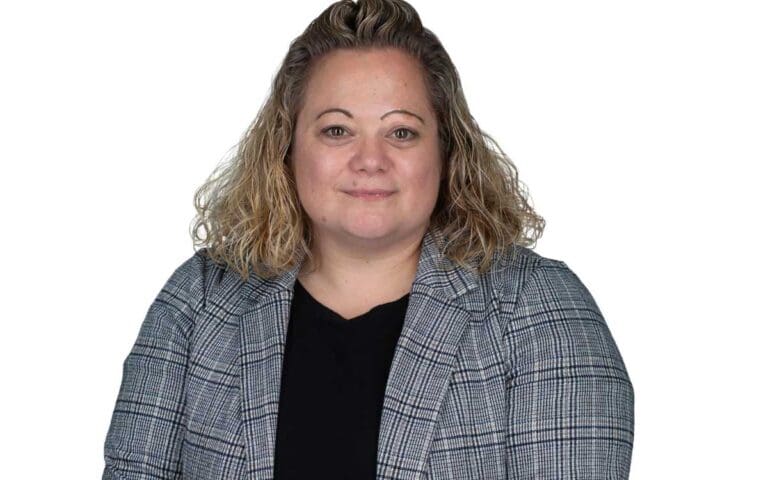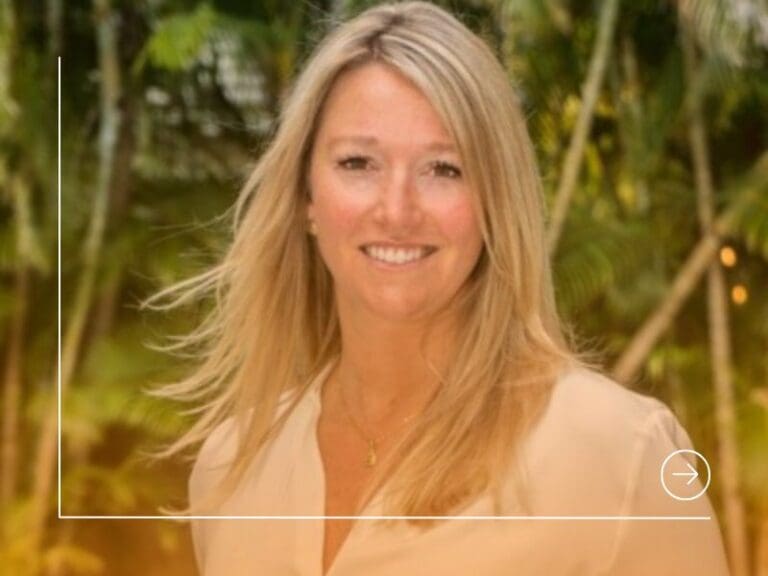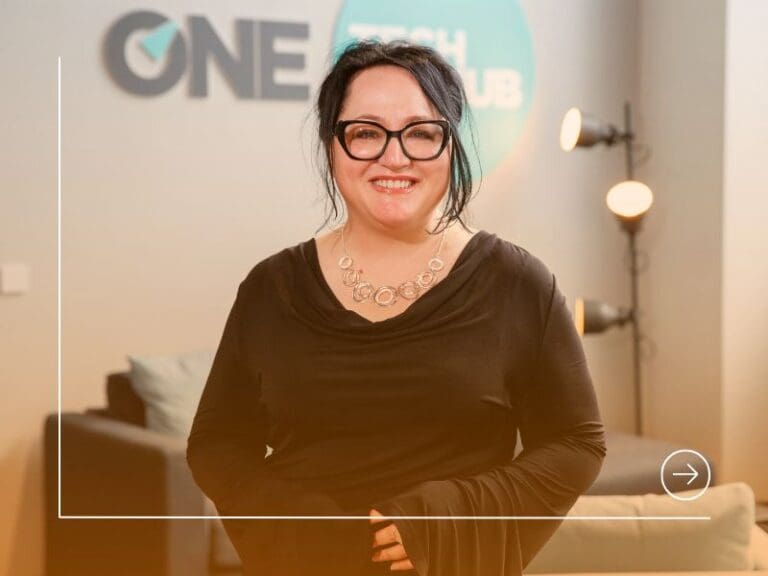Teresa is an experienced finance, treasury, and risk-qualified professional, with an impressive career spanning over 25 years across diverse sectors such as financial services, media, fintech and charity.
At Clear Junction, Teresa looks after finance globally for all group companies, overseeing the financial operations and treasury teams. Her role also involves working closely with Clear Junction’s CEO on the company growth strategy.
How did you land your current role? Was it planned?
After qualifying as a CIMA Accountant and an ACT-accredited Corporate Treasurer, I worked in a foreign exchange, trading and brokerage firms in my earlier career, and then I did a stint in the music and advertising industries, before moving back into financial companies working in finance, treasury and risk management, and becoming heavily involved in fintech. I worked in various finance director roles before joining Clear Junction in 2021.
What are the key roles in your field of work, and why did you choose your current expertise?
At Clear Junction, my role is to lead the finance team globally for our group companies, but I also support the CEO on our strategic growth ambitions. It’s been an interesting and fulfilling position so far, because payments and fintech in general cover so many areas that intersect with the way people and businesses pay. We’re living in this increasingly connected global economy, and payments play a crucial role in enabling commerce between consumers and businesses and transacting globally across borders. There are also around 800 million people globally who receive money from family and friends who are working abroad. Crypto is now entering the mainstream, too. It’s fantastic to work at a company that covers so many exciting and dynamic areas.
Did you (or do you) have a role model in tech or business in general?
Clear Junction’s CEO Dima Kats has been instrumental in building a company culture that encourages people of all backgrounds to thrive. I’m fortunate to work in a hugely diverse team, with more than 120 people of several nationalities, languages and cultures in multiple locations, and a C-suite that’s 50% female. This diversity of backgrounds and experiences brings different viewpoints to the table, fuelling our ability to solve problems with fresh thinking. Everybody feels able to contribute their viewpoint and is made to feel valued for their part in Clear Junction’s growth. The diverse, open and collaborative culture is undoubtedly a major part of why the company has become so successful.
What are you most proud of in your career, so far?
During my career, I’ve experienced many pivotal moments in the finance and treasury industries, and I’ve been proud to contribute to significant financial developments, including the introduction of the Euro, the evolution from floor-based to screen-based trading, and payments evolving from cash and cheques to digital ledger technology.
Looking at crypto specifically, with high-profile scandals like the FTX collapse, people and businesses are understandably nervous about engaging with crypto. At Clear Junction, we’ve worked hard to build trust into the crypto sector, and only work with regulated institutions as part of this. One of our proudest achievements was the recent launch of our anti-fraud escrow solution, to ensure that crypto buyers and sellers can trade safely with full transparency and get exactly what they were expecting. This is the first time that escrow has been used in the crypto sector, and we’re delighted with how successful it’s become.
If you strip back crypto to what it actually means, and you look at digital ledger technology and blockchain, there are clearly many benefits in adopting this technology, particularly in cross-border payments. I believe it will be the next evolution in payments.
What does an average work day look like for you?
Working in such a dynamic and innovative company and sector means that no two days are ever the same! Although my core role is the finance function, I’m fortunate to work across a number of business areas where I get to explore regulatory issues, new technology innovations and how we implement them, and also monitor the industry at large to see which trends may impact our operations.
A large part of what Clear Junction does involves rigorous risk management, so keeping a close eye on issues like money laundering, fraud and cybersecurity issues also come into play on a daily basis. I can honestly say my job is not in the least bit boring!
Are there any specific skills or traits that you notice companies look for when you’re searching for roles in your field?
In fintech, and the tech industry in general, obviously STEM skills are highly sought-after. API developers, coders, software engineers and data scientists are always in high demand. There is a skills shortage at the moment, so attracting and retaining talented people can be a challenge at times. With so much happening in relation to AI as well, this is another area that will become hugely important, so it’s essential that the students of today and tomorrow are equipped with AI-related skills to guide its safe development.
But alongside pure tech roles, there’s also a need for people who are well-versed in fraud trends, regulations and compliance, and business development specialists who understand the nuances of working with companies in different industries and countries.
Regardless of which area people work in, I believe that teamwork, listening to different viewpoints respectfully and collaboration are the vital ‘soft skills’ that underpin a company’s success.
Has anyone ever tried to stop you from learning and developing in your professional life, or have you found the tech sector supportive?
I’ve always been supported to further my professional development throughout my career by my employers, and I’ve been able to study for licences and certifications in addition to doing my job. I recently undertook executive education studies at Imperial College Business School on mergers and acquisitions and Digital Asset Strategy for business with the full support of my CEO Dima Kats. He’s been incredibly encouraging to me and my colleagues in enhancing our skills and knowledge.
Have you ever faced insecurities and anxieties during your career, and how did you overcome them?
Of course, there have been times in my career when I have second-guessed my decisions or hesitated to put my opinions forward. It’s natural to have occasional moments of self-doubt, but the way I overcame that was to remind myself that my experiences, knowledge, contributions and insights are unique and have value. If you have a supportive work environment or a mentor you can confide in, you often find that you are not alone in having anxieties, and most of the time they are baseless and can be dispelled quickly.
Entering the world of work can be daunting. Do you have any words of advice for anyone feeling overwhelmed?
I think that everyone probably gets nervous when they’re about to start their first job, even those people who outwardly look confident. What I would say to anyone, and particularly girls and women, is to give yourself credit. Remind yourself that you have been hired for a reason – because the company thinks you’re the best person for the job. Try not to compare yourself too much with other people. Be proud of your own attributes and have confidence to put your viewpoints across.
What advice would you give other women wanting to reach their career goals in technology?
Many of the barriers that prevent women from achieving their aims are built from outdated attitudes that are now thankfully being dismantled. When half of the world’s population is female, it’s vital that tech companies ensure that women are fully represented in their workforces at every level.
If fintechs want to become a force for good and improve financial inclusion then they have to start representing the societies they serve, especially when data shows that companies with more gender and ethnic diversity are more likely to innovate with products that cater to a more diverse audience, and yield higher revenues. What I would say to women in tech is to have confidence in your abilities, your opinions and your self-worth. Don’t be afraid to speak up and make your voice heard. Also, try to be a mentor to other women in tech. I volunteer with the ACT as a mentor for students, to help them with practical advice and insights drawn from my own experiences. Having strong support networks where women can share experiences and advice is incredibly important and makes for better companies and workforce cultures. Take the opportunity to make positive change.








